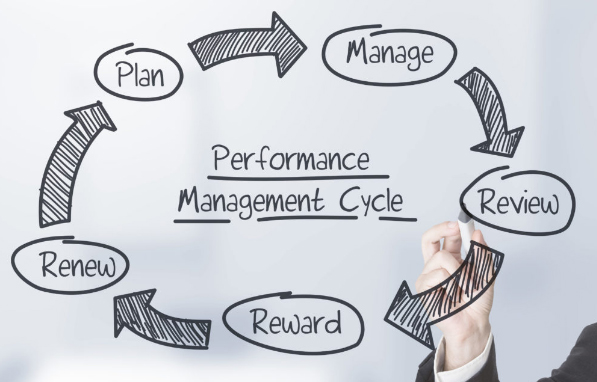Performance Management
STRUGGLING TO SUPPORT YOUR TEAM TO MEET BUSINESS OBJECTIVES?
A fundamental issue for managers tasked with producing key business results is exploiting the relationship between the people who work in the organisation and the value they produce.
Performance management is a method of directly involving employees in their individual job results and ensuring that they understand how this contributes to larger organisational goals. It will promote individual and team collaboration and hold people accountable for their performance if it is aligned with organisational strategy and successfully implemented.
Effective performance management is based on both formal and informal methods, is based on regular two-way dialogue, and provides open, supportive feedback on progress towards goals.


WHY PERFORMANCE MANAGEMENT MATTERS
Rapidly identify the source of performance issues
As the challenges that businesses face appear to be increasing by the week, it is critical that individuals and teams work successfully and satisfy business needs.
Delays in addressing under performance or mismatched objectives have major implications, and neglecting to effectively support staff results in absence, attrition, and poor employee relations.
Employers who are on the lookout for signals of irregular productivity are better able to address problems early on and avoid the negative consequences that might occur when employees struggle.
Employees frequently enjoy fast and honest feedback that allows them to alter their work to meet the needs of the business. An employee who is told they are under performing after believing for many years that they were a vital cog in the machine would be dissatisfied, frustrated, and far less inclined to make the necessary modifications.
Roadmap: the best way forward
Performance management is a means of tracking work performance, setting clear targets, offering regular feedback, and developing abilities so that individuals may contribute to team and corporate goals to the greatest extent possible.
A logical approach to performance management will often include three phases that encourage people and teams to enhance their performance level:-

Planning and objective setting
Setting and monitoring individual goals that are also aligned with company objectives enables managers to analyse employee impact.
Progress monitoring
Managers and employees meet on a regular basis to review areas for growth and progress. These regular check-ins allow managers to address concerns before they become major difficulties.
Review
Employees should be reviewed quarterly or biannually. These informal sessions assist managers in effectively assessing employee growth, accomplishments, and performance.
